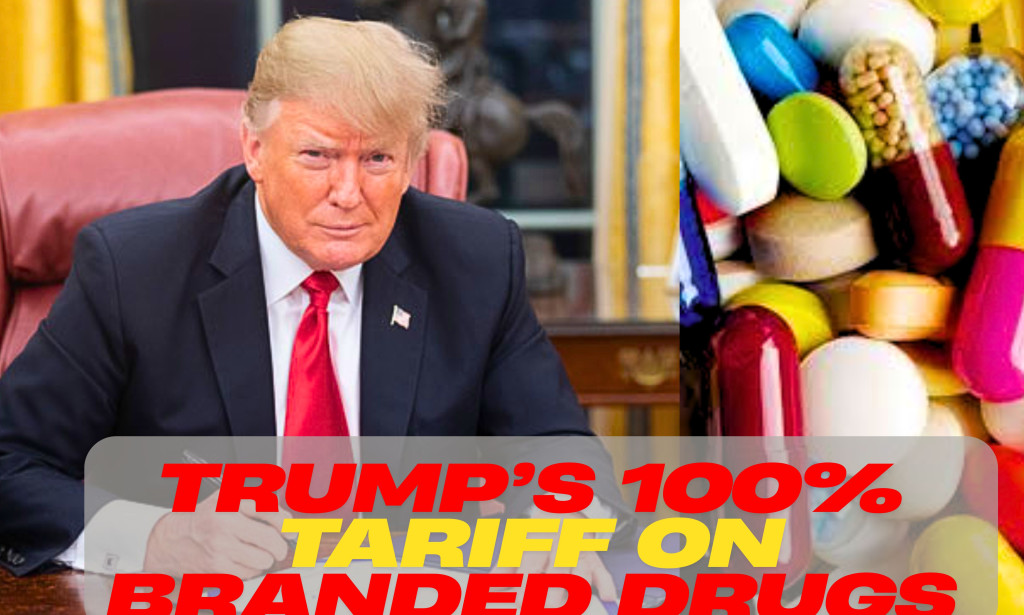The announcement of a 100% import tariff on branded and patented pharmaceutical drugs by U.S. President Donald Trump has rattled global markets. Although Indian pharmaceutical exporters are primarily oriented towards generic drugs, the decision has transmitted a wave of indecisiveness in the whole sector about the potential variations of trade policy and the stability of the market.
What the Tariff Covers
As explained by Trump, the tax will be applied to all branded or patented drugs except for those products for which the manufacturer is already building or has an established plant in the U.S. This is a method for the company to attract foreign multinationals for domestic production. Although it appears that generics are now excluded, some experts point out that the terms "branded" and "complex generics" might be changed in the future so that more Indian companies could be considered impacted.
Impact on Indian Pharma
Despite being the world's largest supplier of generic medicines to the U.S., India, which accounts for close to 40% of prescriptions filled in the U.S., the announcement of tariffs on generics by the U.S. seems to have no major immediate impact on Indian pharma. However, several Indian pharmaceutical companies such as Sun Pharma, Dr. Reddy’s, and Lupin, that have branded as well as generics portfolios might experience the exhaustion of earnings due to the tariff imposition. Moreover, after the announcement of the tariff, Indian pharma equity decreased by 2–3 %. Such a fall indicates the typical reaction of investors to the news, or in other words, their doubtful approach towards the future of Indian pharmaceutical companies.
Risks on the Horizon
- Tariff Expansion – Apart from tariffs on generics, U.S. might take further trade decisions against branded drugs.
- Compliance Ambiguity – Unclear characterizations of biosimilars and branded generics may result in compliance challenges.
- Supply Chain Disruption – Higher operational costs may occur if companies have to make a capital expenditure on a new U.S. site.
- Trade Tensions – If conflicts intensify, India might be targeted for imposing a wide range of retaliatory measures.
Strategic Responses for Indian Companies
- Don't put all of your eggs in one basket when it comes to exports. For instance, by aiming at Europe, Africa, and Latin America, you can decrease dependency on the U.S. market which is a better way to export.
- Send a strong signal to the U.S. market. A company that is raising the value of American industry through capital investment may be granted exemption and thereby take the competitive lead over rivals.
- Cooperate with the Government Officials. You might, through active lobbying by trade bodies, get the help needed in obtaining transparency and securing generic exports.
- Concentrate on Increasing your Efficiency in terms of Cost. A stronger supply chain will make you less vulnerable to tariff uncertainty.
Outlook
Though 100% tariff directly hits branded drugs, it is a signal of the U.S. administration’s protectionist approach. The immediate risk to Indian pharma may be small, yet the real problem is how to accommodate the changing global trade regulations in the long run. Those firms that make strategic investments, diversify their markets, and keep their costs low will most likely be the ones that can survive the next ruffle.



You must be logged in to post a comment.